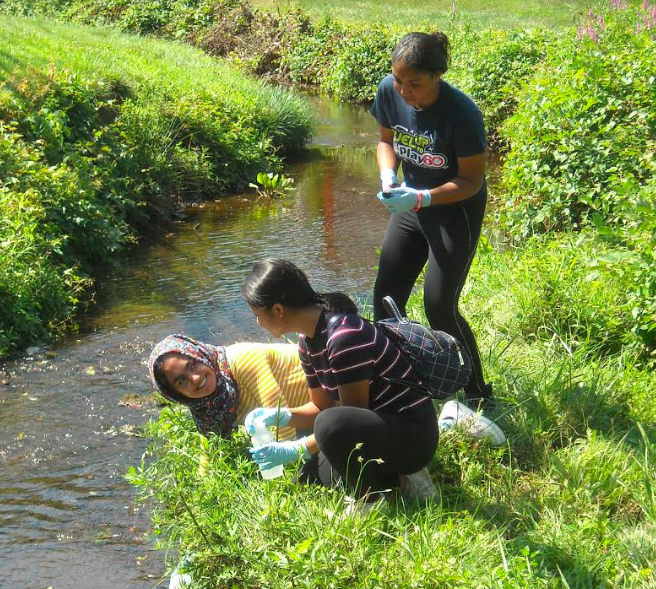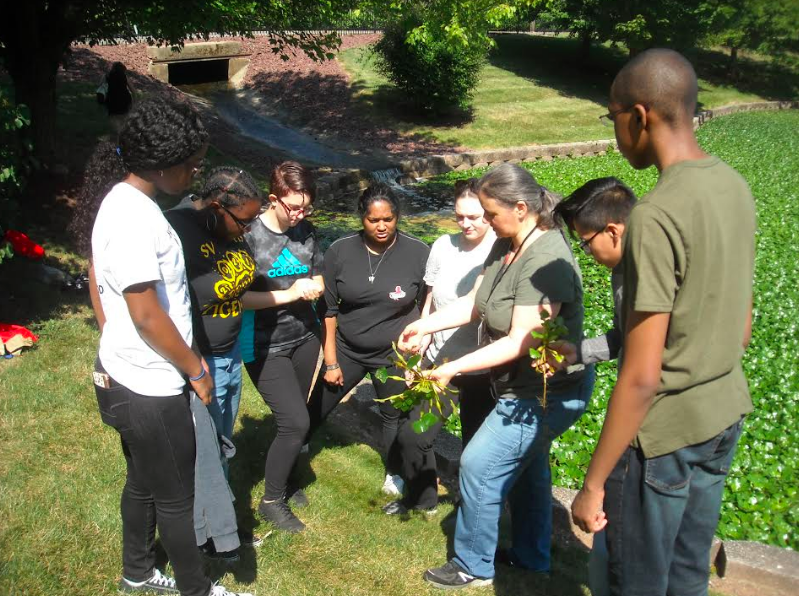One of Rockland’s most prominent colleges has embarked on a new partnership with a world-famous local scientific research laboratory to develop a summer school program that inspires high school students to pursue studies in science, technology, engineering and mathematics (STEM). The Research Immersion in Science and Ecology (RISE) program steeps students from grades 9-12 in a wide array of scientific research disciplines, methods and outcomes during an intensive three-week program. That program takes place on the campus of Dominican College in Blauvelt.
In addition, Lamont-Doherty Earth Observatory (LDEO) in Palisades offers RISE students continuing opportunities after the program ends through the fall, including diversity panel discussions, a poster session that includes students from other programs around the state, a poster session with students from China and an invitation to Lamont’s open house in October.
The LDEO is a research unit of Columbia University located on a 157-acre campus in Palisades, N.Y. It brings together people and tools to address some of the world’s most challenging problems from climate change and environmental degradation to poverty, disease and sustainable use of resources. Lamont-Doherty also operates a federally-funded research ship which uses seismic data too map the sub-seafloor, highlighting hidden faults and other earthquake hazards.
The Rockland County Times visited the campus to view the STEM program. At that time Dr. Regina Alvarez, Assistant Professor of Biology at Dominican College had her students go to a pond in the front of the campus to study the water chestnut plant. It is a rooted submerged invasive aquatic plant that quickly forms dense floating mats that out-competes native plant communities. Its decay can deplete oxygen levels, leading to fish kills. Dense growth can interfere with swimming and entangle propellers, which hinder boating, fishing and waterfowl hunting. In mid-July, small white flowers appear on rosettes at the water’s surface. When fruits form, they become submerged and dangle beneath their rosette’s. Biodiversity loss and ecosystem change can increase the risk of emergence or spread of infectious diseases in animals, plants and humans.
 Dr. Colleen Evans, Assistant Professor of Chemistry at Dominican College told the Rockland County Times, “Students today are taking water samples from Sparkill Creek and measuring phosphates, nitrates, pH, temperature of the sample they take, hardness, calcium ,magnesium, silica, dissolved oxygen, carbon dioxide and look for microplastics in the water. We are treating microplastics with nile red stain, illuminating them with a blue light so the samples would fluoresce when looking at them with an orange lens.”
Dr. Colleen Evans, Assistant Professor of Chemistry at Dominican College told the Rockland County Times, “Students today are taking water samples from Sparkill Creek and measuring phosphates, nitrates, pH, temperature of the sample they take, hardness, calcium ,magnesium, silica, dissolved oxygen, carbon dioxide and look for microplastics in the water. We are treating microplastics with nile red stain, illuminating them with a blue light so the samples would fluoresce when looking at them with an orange lens.”
Plastics are important materials. They make our lives easier and are often lighter and cost less than alternative materials. If they are not properly disposed of or recycled, they can persist for long period in the environment and can degrade into small pieces called microplastics. They can be deliberately manufactured and intentionally added to products as exfoliating or abrasive beads in facial or body scrubs or as glitter in makeup. Once released into the environment, they may be accumulated by animals, including fish and shellfish and eaten by consumers.
STEM education puts an emphasis on preparing future generations to be successful in their careers. The focus on hands-on learning with real-world applications helps develop a variety of skill sets including creativity and 21st century skills. These skills include media and technology literacy, productivity, social skills, communication, flexibility and initiative. Other skills attained through STEM education include problem solving, critical thinking, decision making, leadership and entrepreneurship.
Orange and Rockland Utilities, Inc. has awarded Dominican College, the lead partner in this venture, a two-year $22,000 grant to help develop STEM skills among local secondary school students.


You must be logged in to post a comment Login